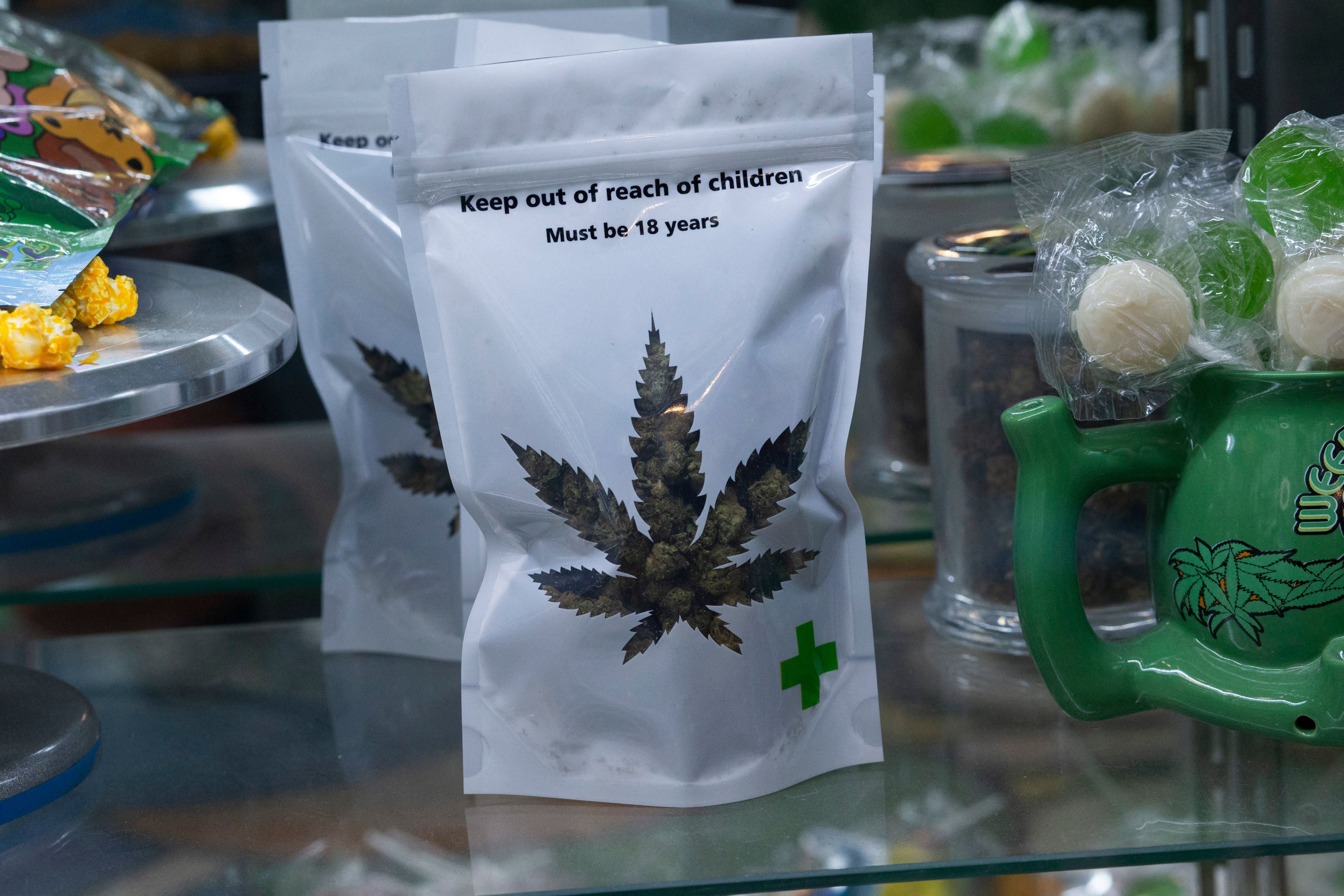Medical marijuana changed my life. So let’s talk about ‘unstable potheads’
There is no conclusive evidence that cannabis is a ‘gateway’ drug — but studies do show it can help cancer patients, chronic pain, epilepsy and anxiety


It’s 4/20, the unofficial holiday celebrating cannabis and its consumption, and the first legal one in New York. Today, we can speak openly of the rich history of cannabis activists in NYC and what led to legalization (for adults 21 and older), as well as the record expungements for those arrested for possession of marijuana in the past.
Of course, not everyone is happy about the legalization of cannabis in the city. New York Post a few days ago published an op-ed predicting that New York City will soon be “crawling with unstable potheads”, adding, “Proponents of pot have long insisted that weed is wondrous medicine and can treat or cure everything from nausea to epilepsy to lupus to insomnia, with zero side effects or risk of overdose… Sounds like a snake-oil pitch.”
So let’s talk about “unstable potheads”, because by that definition, I am one.
Much to my parents’ dismay, I began identifying with “stoner culture” in my early college years and picked up a habit of smoking several times a day. At the same time, I was doing work at the United Nations and on congressional campaigns; I interned and wrote in international newsrooms, and excelled in the classroom. As someone with chronic health issues, I found that the regular use of cannabis changed my life — and my doctors agreed.
It’s been about three months since I was formally approved for medical marijuana, and it’s completely revolutionized my life. I’m able to formulate an eating schedule around consuming cannabis in order to attain three meals a day and maintain my blood sugar levels, in addition to using the drug for chronic pain management and the management of regular nausea and vomiting that had previously forced me to call out of classes and work.
I was using cannabis medically even before I recognized that I was using it medically. Every time I hit an oil pen because my head hurt, every time I packed a bong to stimulate my appetite, every edible to get to sleep — all were consumed in an attempt to ease pain and improve my quality of life, not just to get high.
Many who haven’t smoked in years (or ever) don’t understand why legalization, and now normalization, of cannabis usage is important. A certain stigma follows the use of marijuana, dating back to Reefer Madness: a 1936 propaganda film that depicted the horrible things that would happen to your children if you allowed them to consume the devil’s lettuce, like hallucinations and suicide. Even today, cannabis is routinely described as a “gateway drug” in high school health classes. The simple fact is, however, that according to the Centers for Disease Control, the majority of people who use marijuana do not go on to use harder drugs, and there is no conclusive evidence that recreational cannabis is a “gateway” to anything more than the snack cupboard.
Currently, many states with medical programs often have regulations that require you to see doctors with specific certifications, many of whom don’t take insurance for these visits. Telehealth visits for medical marijuana are becoming more common, but range from $100 to $250. Many people who are considering medical cannabis as a treatment option — who may already have expensive medical bills for complicated health issues — can’t afford to spend that kind of money, leaving them to abstain or seek out street weed. That’s why full NYC-style legalization is so worthy of celebration. Those who may have been using street cannabis to ease issues related to their health will now have access to clean, reliable grows and the information around how that cannabis was produced without the financial barriers linked to the New York Medical Marijuana program, and others like it.
“Stoners” aren’t who or what you think they are. Not everyone who consumes cannabis is a skater burnout who’s going to terrorize your neighborhood. Cannabis consumers look like CEOs, doctors, consultants, presidents, journalists, and chronically ill people, not just the teens snickering in the corner of a Taco Bell or Harold and Kumar. And no, of course cannabis is not appropriate for children. Like alcohol, it is a substance that needs to regulated and appropriately distributed by qualified individuals.
Studies show that consuming marijuana can ease chronic pain, help cancer patients with nausea and eating, and treat anxiety. Many women find relief during rough menstrual cycles from both CBD and THC. Cannabis-derived medication has been helpful for children with treatment-resistant epilepsy. Simply put, cannabis can be used as medicine and should be treated as such.
If medical cannabis wasn’t so stigmatized and financially gatekept, perhaps I would have sought it out sooner rather than smoking in secret. Perhaps older people with chronic pain would feel comfortable walking into a dispensary and buying edibles without judgment or controversy. People deserve to explore alternative options in their healthcare, and cannabis accessibility enables that.
It’s time that we acknowledge that cannabis needs to be accessible, normalized, and destigmatized for adult use, for the benefit of America’s public health.
Join our commenting forum
Join thought-provoking conversations, follow other Independent readers and see their replies
Comments